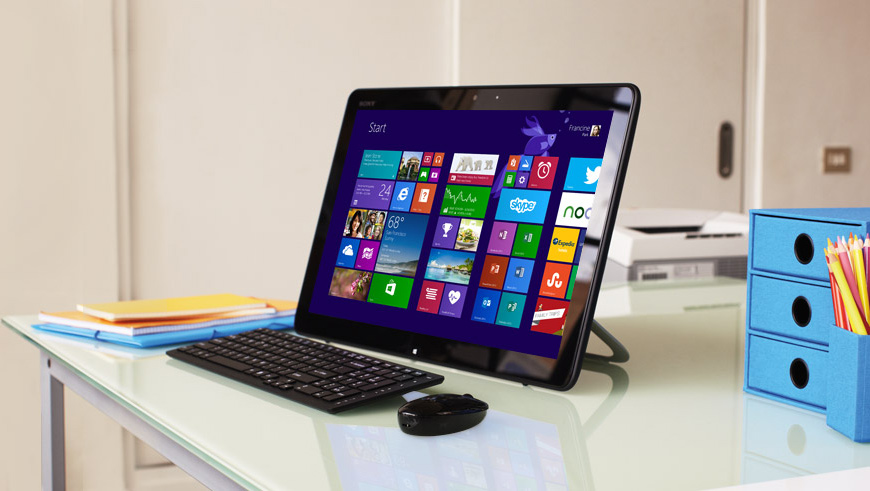If you want to understand why Windows 8 has been a failure so far, the following quote from IDC analyst Jay Chou explains it all: “The chief concern for future PC demand is a lack of reasons to replace an older system.” This is a big problem for Microsoft because the entire point of Windows 8 was to ignite demand within the PC market and make people want to replace their older systems with new touch-enabled PCs that would slow the growth of iOS and Android as rival mobile computing platforms. But as IDC’s latest research shows, that simply isn’t happening.
In all, IDC projects that PC sales have shrunk by more than 10% year-over-year in 2013 despite the much-hyped launch of Windows 8 last fall. IDC says that this represents “by far the most severe yearly contraction on record” and the firm expects demand for PCs to stay mostly stagnant over the next four years. Although IDC expects demand for Windows-based tablets to pick up, it projects those sales will be a relative drop in the bucket compared to all the lost Windows PC sales.
“The emergence of 2-in-1 devices designed to function in both clamshell and slate configurations — many of which will run Windows — along with Windows-based tablets themselves, is expected to provide some new volume for the Windows platform as well as the PC vendors and other parts of the traditional PC ecosystem in coming years,” says IDC analyst Loren Loverde. “However, relative to a PC market size of roughly 300 million units, these Windows tablets would add just a couple percent a year relative to PC growth.”






